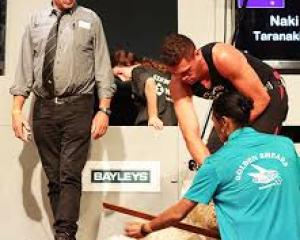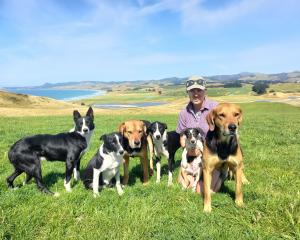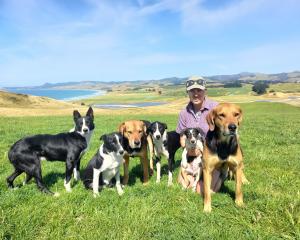
Quintin Hazlett, a passionate sheep and beef farmer, is referring to Hukarere Station, New Zealand’s largest family-owned working organic sheep and cattle property and his home.
The West Otago tussock hill country was renowned for its landscape features and its history. The isolated area comprised a tight-knit community which relied on each other during adverse events and also for social connection as it was "too bloody far to go too far", Mr Hazlett said.
Seeing Ernslaw One’s forestry development over the fence on the previously productive farmland of Warthill was "tragic" and he shared fellow neighbours’ concerns about the potential for wilding spread on to his property.
Ernslaw One said it was operating under the National Environmental Standards for Commercial Forestry regulations and it would have an ongoing wilding management programme that included close management and monitoring of boundaries, regular engagement with neighbours and proactive remediation if wilding spread did occur.
When it was offered for sale for the first time in 96 years, Warthill had estimated five-year stock units of about 11,500 sheep, beef and deer, along with three houses on the property and shepherd’s quarters.
Its conversion to forestry was not going to help the local school roll or the local transport company, Mr Hazlett said.
Forestry was also such a long-term type of farming practice.
"It’s a forever change to our community and, if there is an issue, who’s going to be there to fix it? You don’t want to create liabilities for future generations."
He first heard the farm had sold to forestry "just through the rumour mill" and found it very hard to believe.
He was quick to stress he was not against trees; the Hazletts had planted trees on Hukarere, which the Pomahaka River runs through, including shelter belts and in gorse-covered areas.

While he was the last person to tell someone what to do within their farm gate, he "certainly wouldn’t do things that create liabilities for my neighbours and future generations".
He and his wife Rebecca farm following both organic and regenerative agricultural systems.
They have three children and the youngest is still at school.
The family also run a tourism business, which offers hunting, fishing, mountainbiking, horse trekking and tramping, and accommodation, to allow others to share their patch of paradise.
They also provide a taste of their home to the public with their award-winning meat available online direct to consumers under the brand Meat With Us.
They recently won a gold medal in the paddock category of the Outstanding Food Producer awards for their certified organic ribeye steak.
"We’re just super passionate [about] why we do what we do," he said.
"We believe in a more sustainable future.
"I love the fact you’re providing food for people."
They had diversified to help educate people about farming and explain why they do what they do, and allowed the public to view the operation.
Hukarere was an "open book" where people could visit and see those practices, he said.















